Sasha Sheng
MUGEN: A Playground for Video-Audio-Text Multimodal Understanding and GENeration
Apr 28, 2022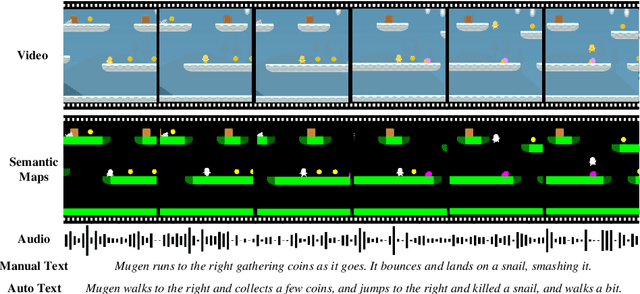
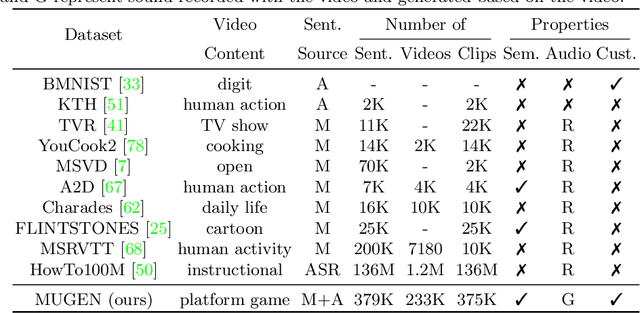
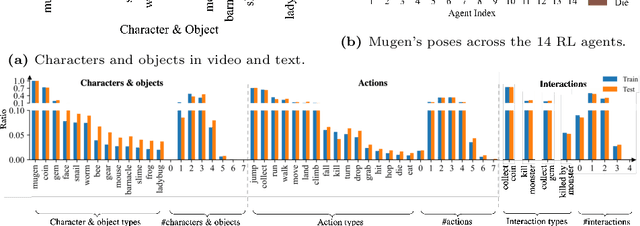

Abstract:Multimodal video-audio-text understanding and generation can benefit from datasets that are narrow but rich. The narrowness allows bite-sized challenges that the research community can make progress on. The richness ensures we are making progress along the core challenges. To this end, we present a large-scale video-audio-text dataset MUGEN, collected using the open-sourced platform game CoinRun [11]. We made substantial modifications to make the game richer by introducing audio and enabling new interactions. We trained RL agents with different objectives to navigate the game and interact with 13 objects and characters. This allows us to automatically extract a large collection of diverse videos and associated audio. We sample 375K video clips (3.2s each) and collect text descriptions from human annotators. Each video has additional annotations that are extracted automatically from the game engine, such as accurate semantic maps for each frame and templated textual descriptions. Altogether, MUGEN can help progress research in many tasks in multimodal understanding and generation. We benchmark representative approaches on tasks involving video-audio-text retrieval and generation. Our dataset and code are released at: https://mugen-org.github.io/.
Human-Adversarial Visual Question Answering
Jun 04, 2021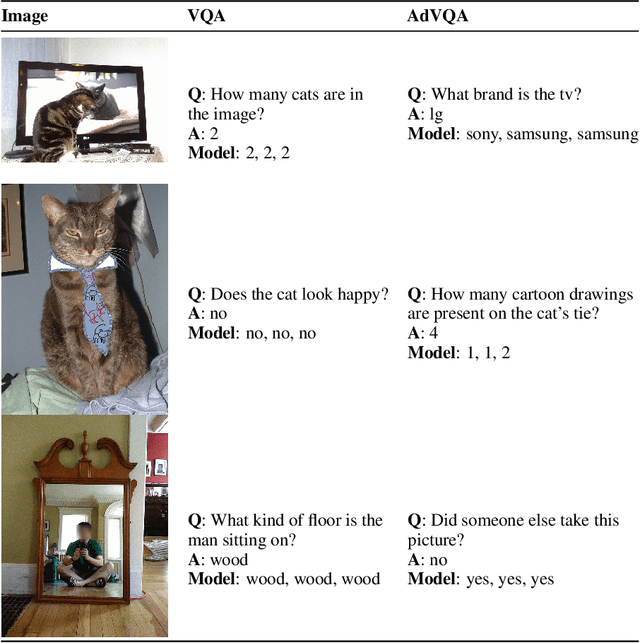
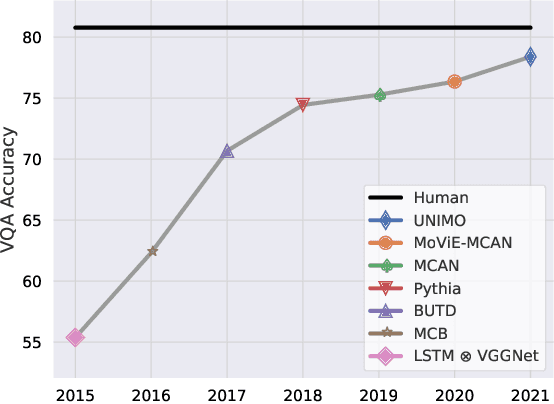


Abstract:Performance on the most commonly used Visual Question Answering dataset (VQA v2) is starting to approach human accuracy. However, in interacting with state-of-the-art VQA models, it is clear that the problem is far from being solved. In order to stress test VQA models, we benchmark them against human-adversarial examples. Human subjects interact with a state-of-the-art VQA model, and for each image in the dataset, attempt to find a question where the model's predicted answer is incorrect. We find that a wide range of state-of-the-art models perform poorly when evaluated on these examples. We conduct an extensive analysis of the collected adversarial examples and provide guidance on future research directions. We hope that this Adversarial VQA (AdVQA) benchmark can help drive progress in the field and advance the state of the art.
 Add to Chrome
Add to Chrome Add to Firefox
Add to Firefox Add to Edge
Add to Edge